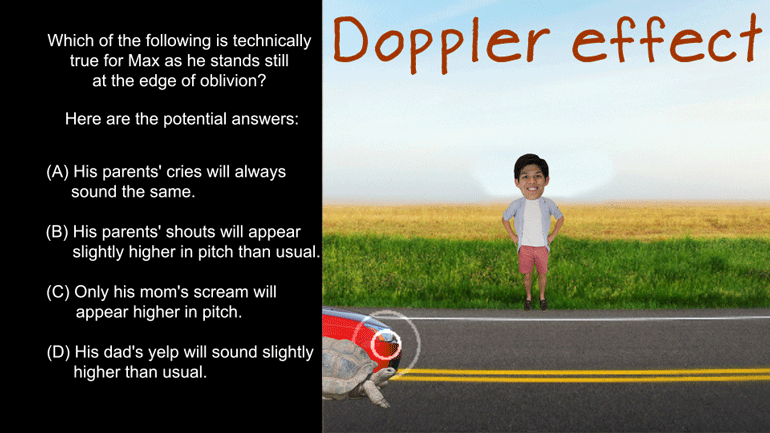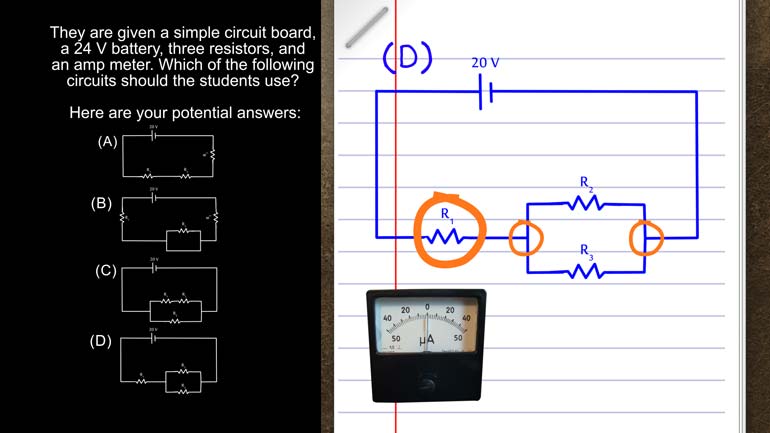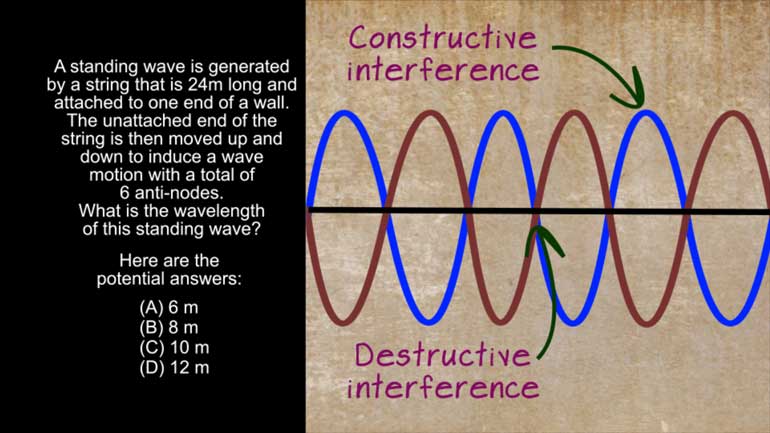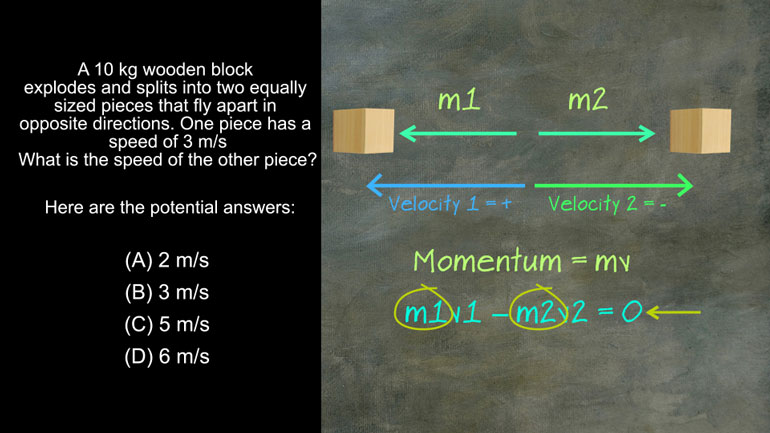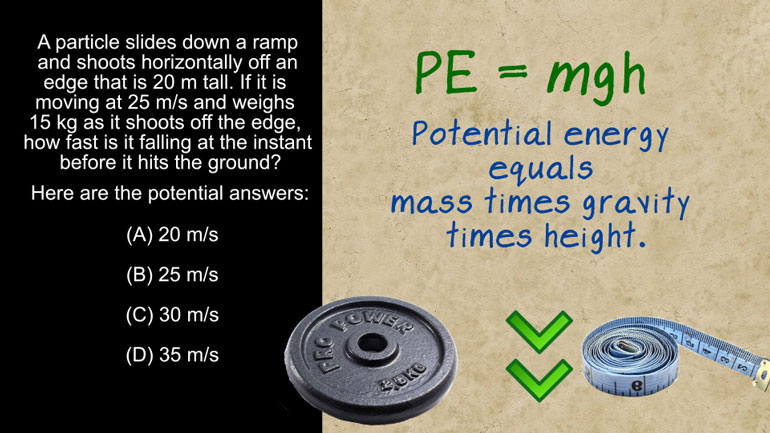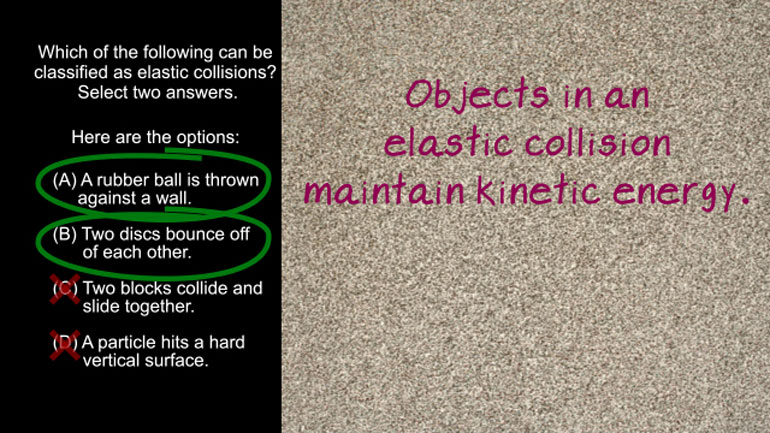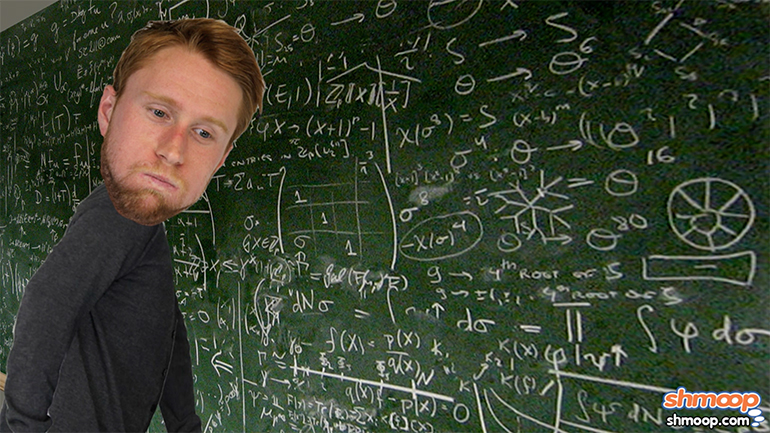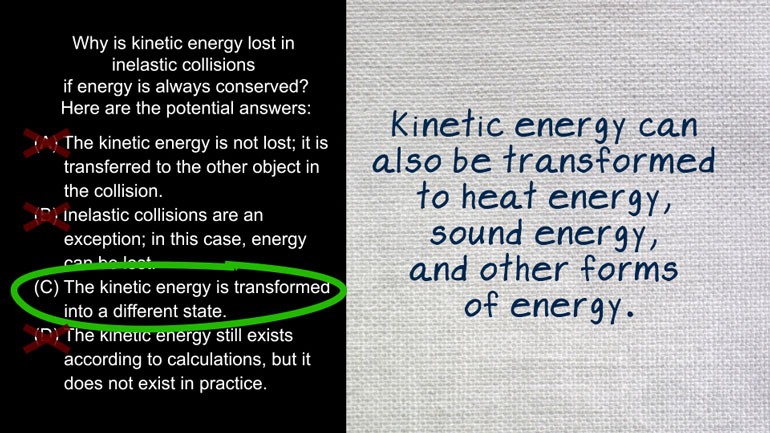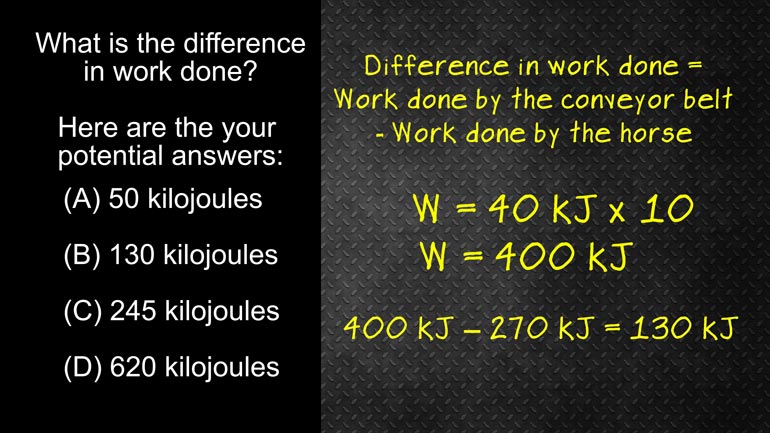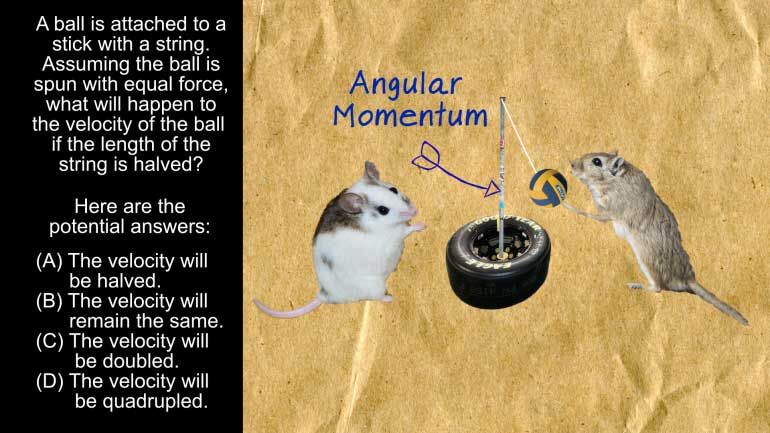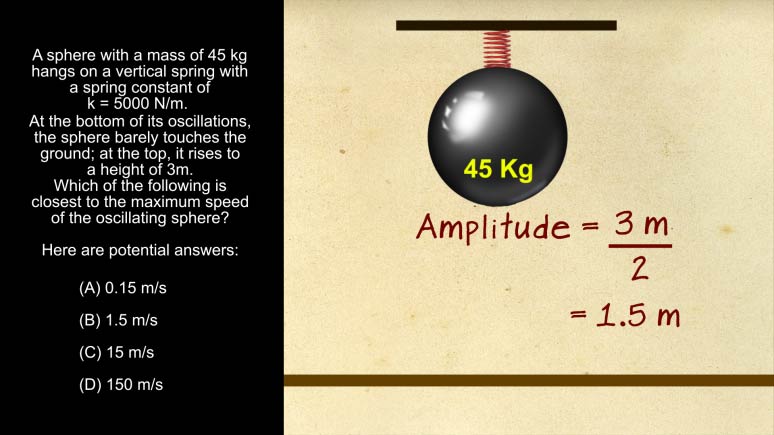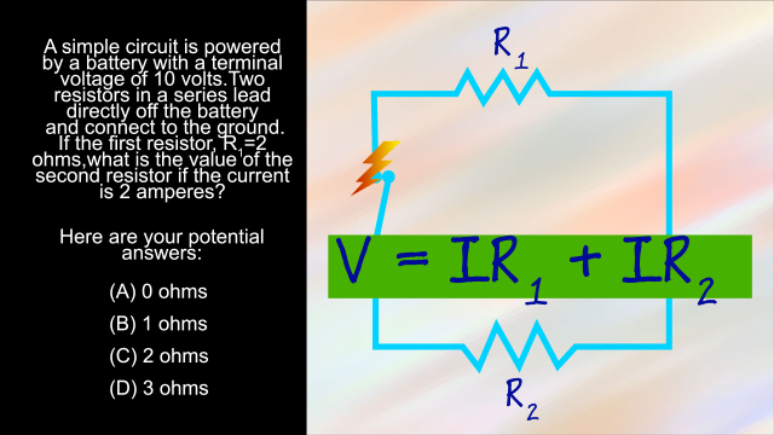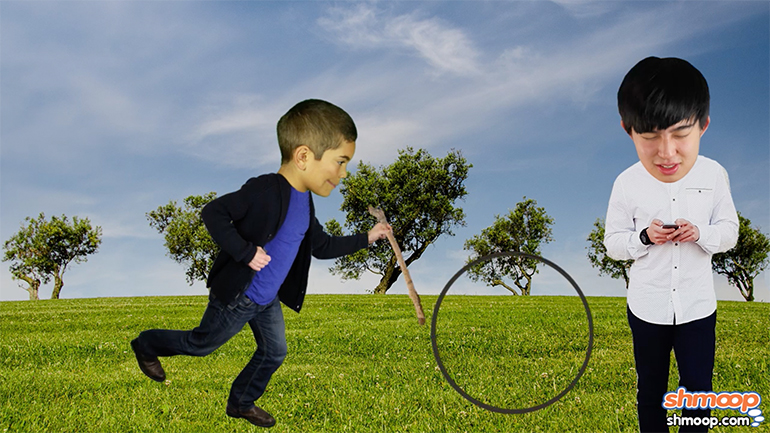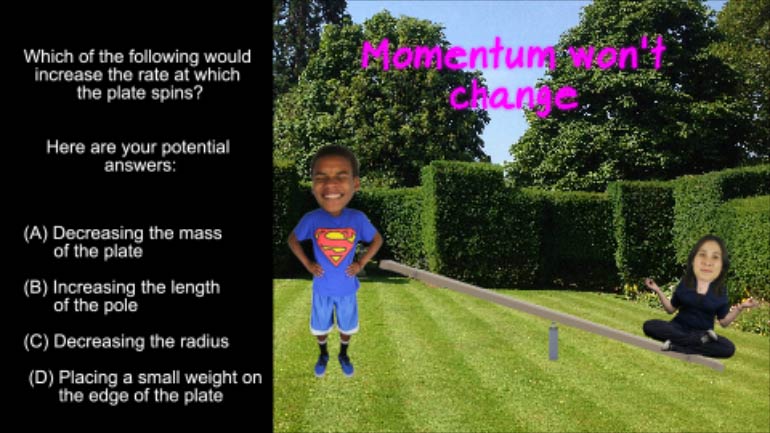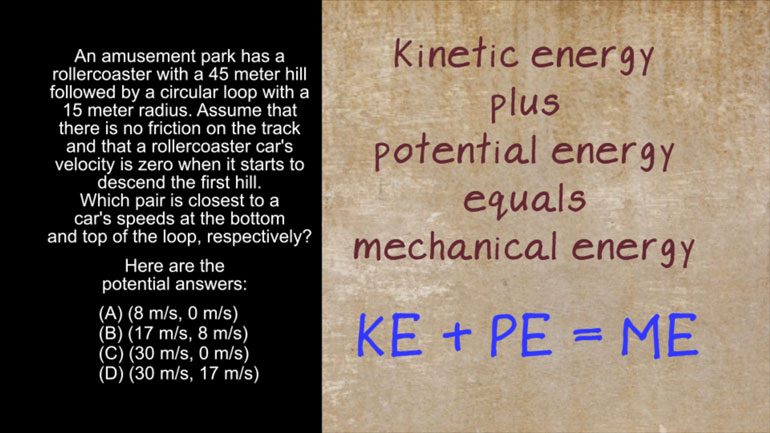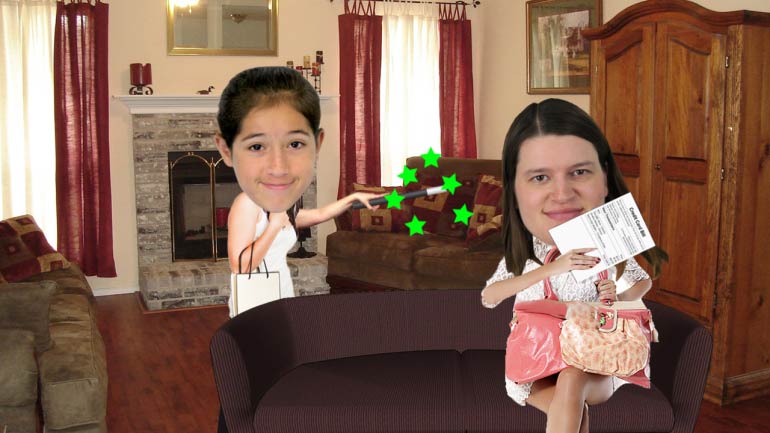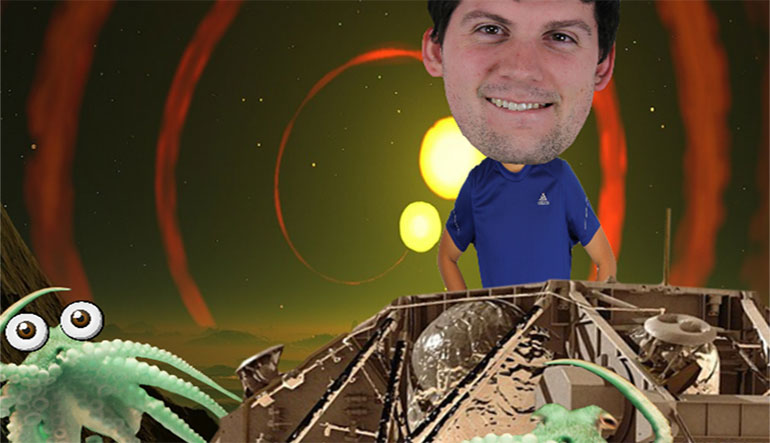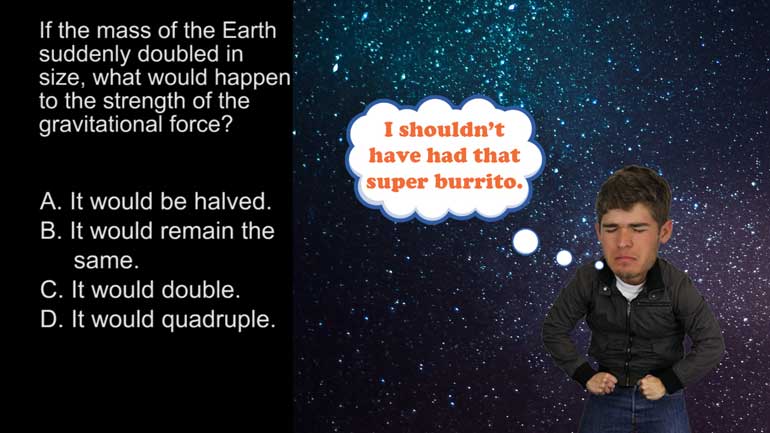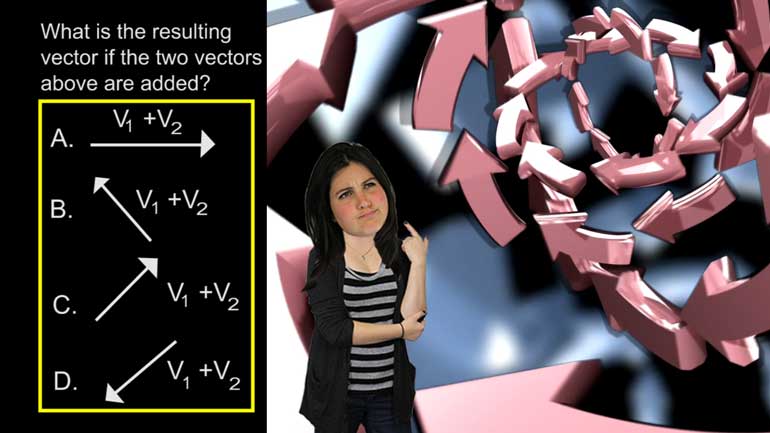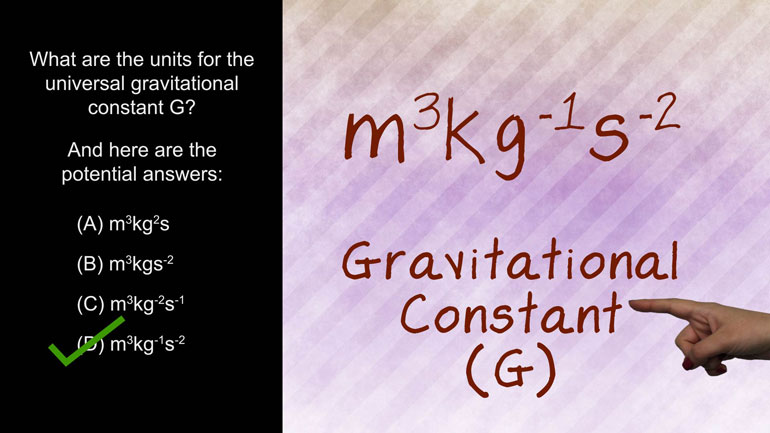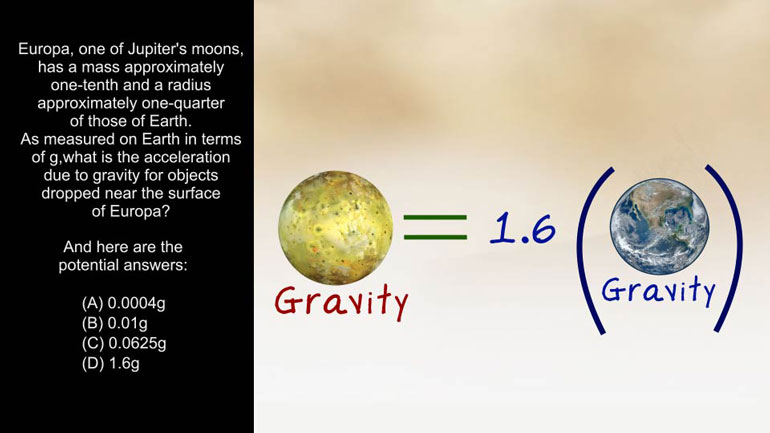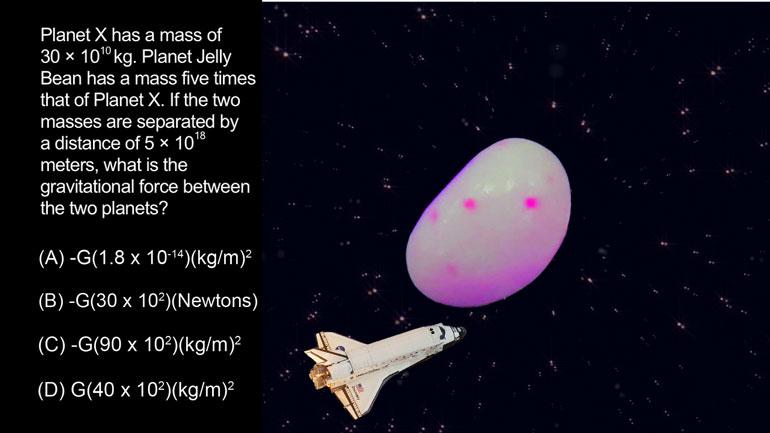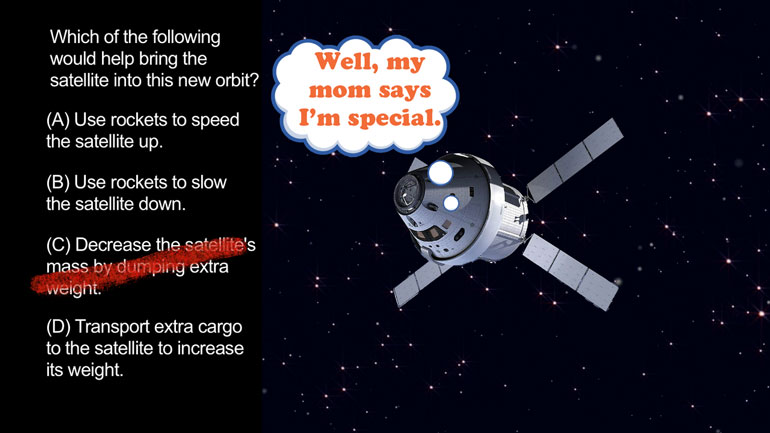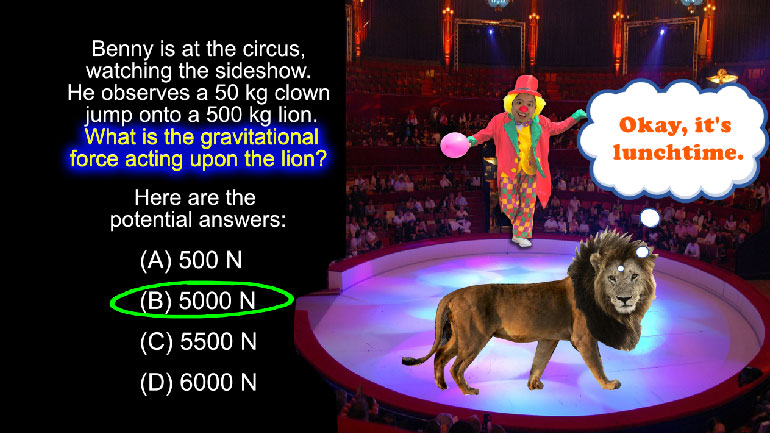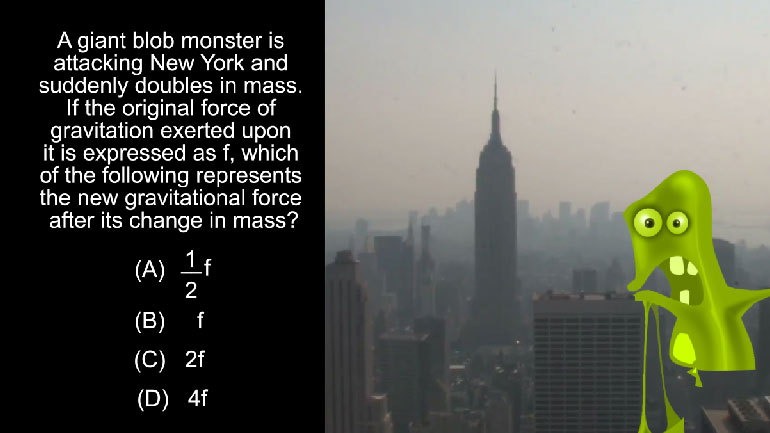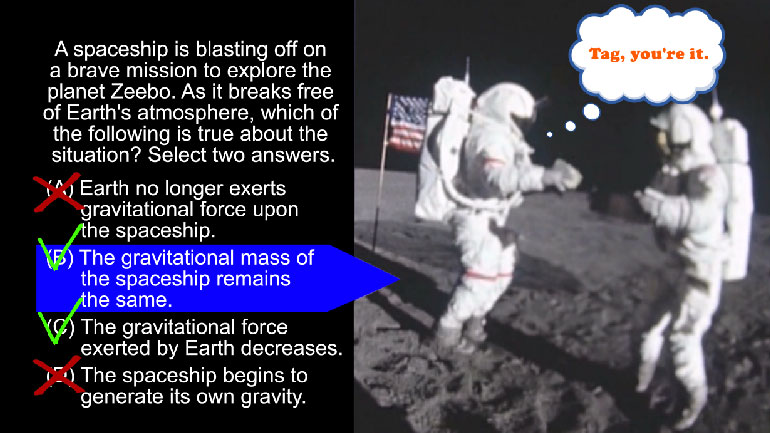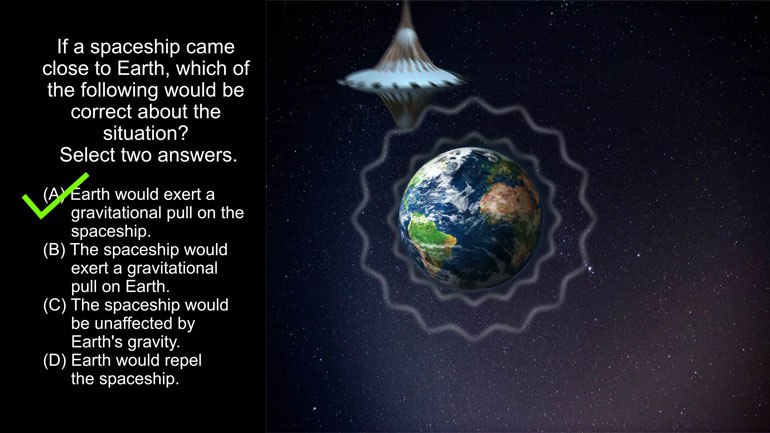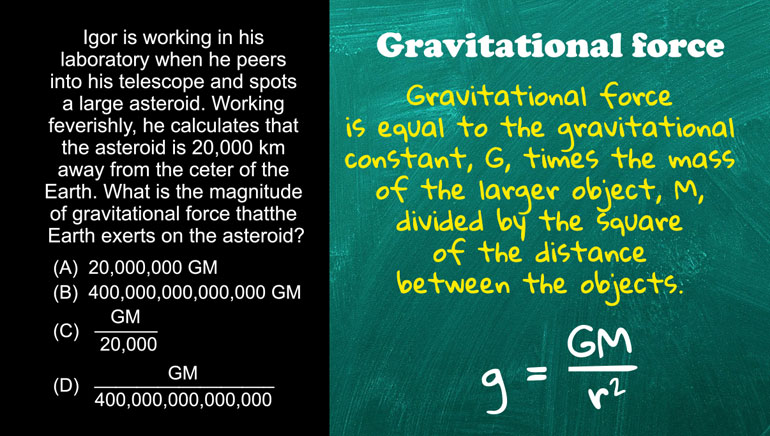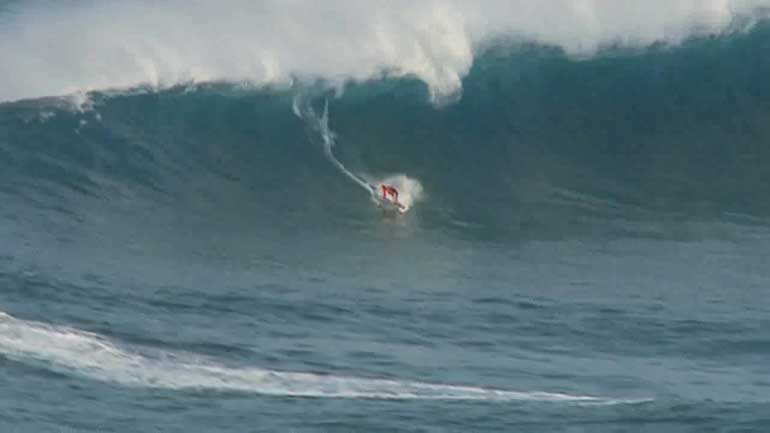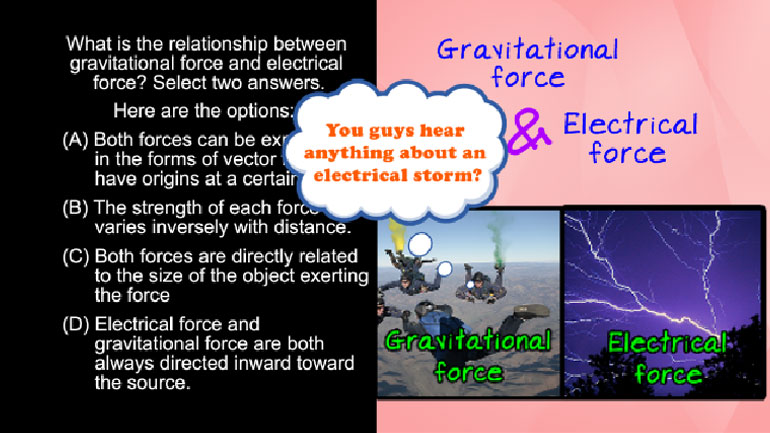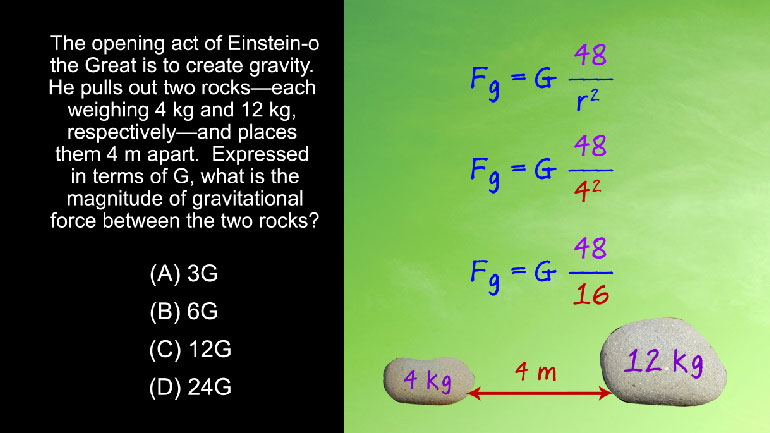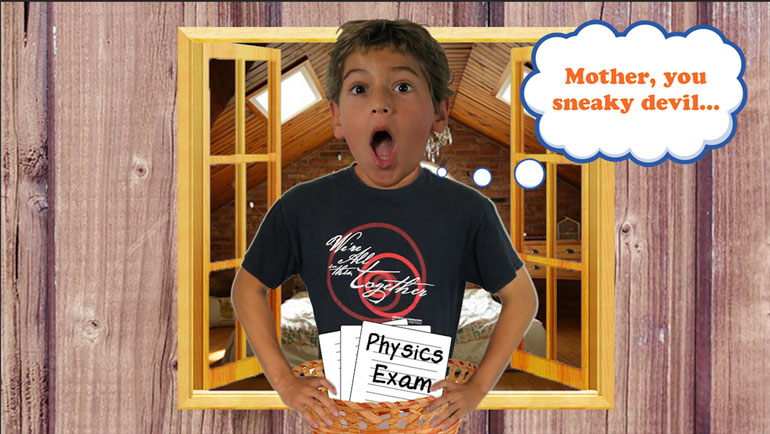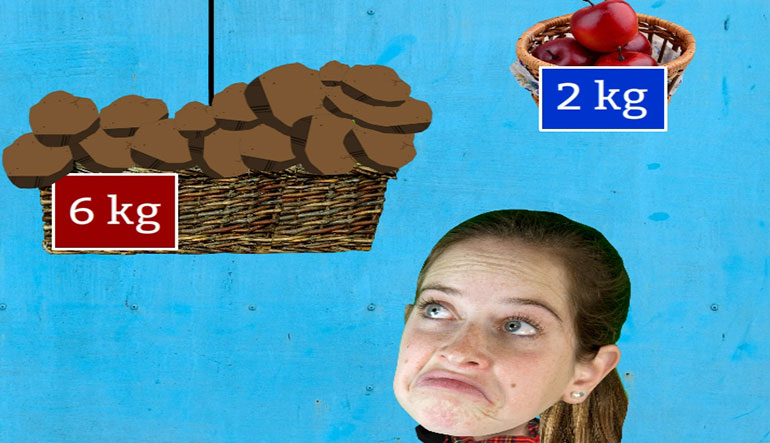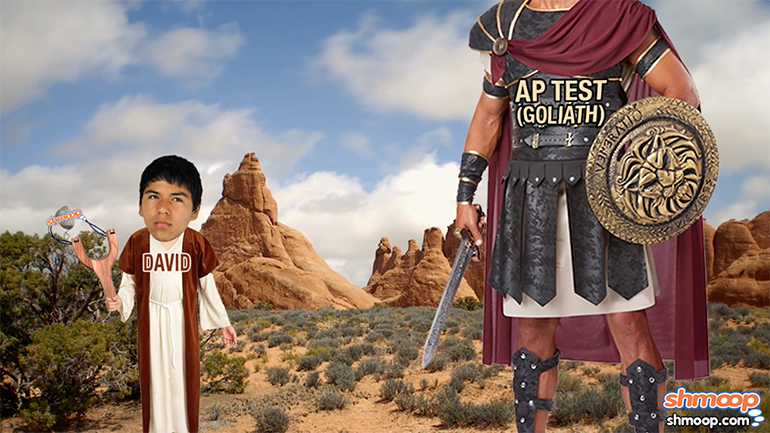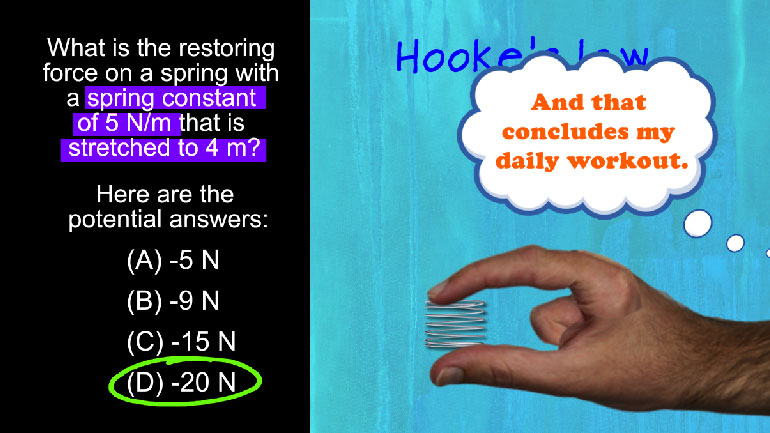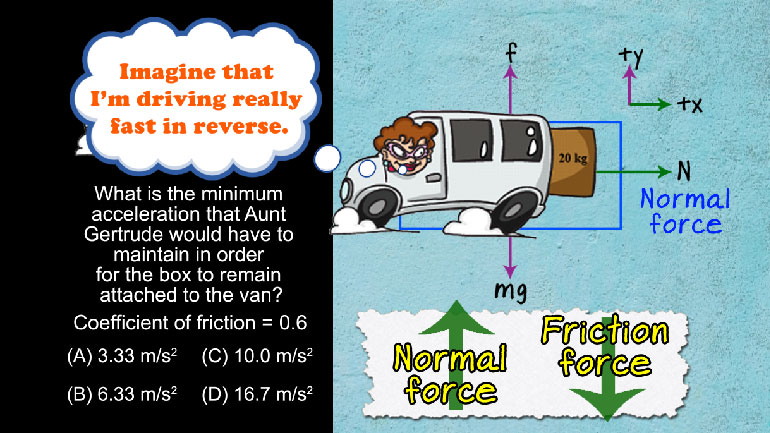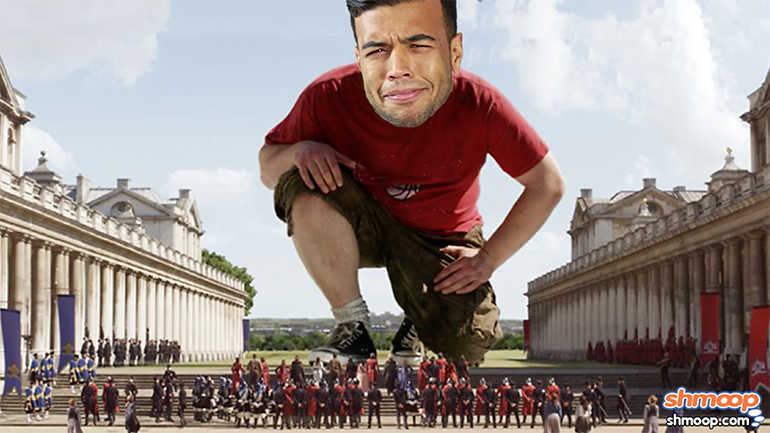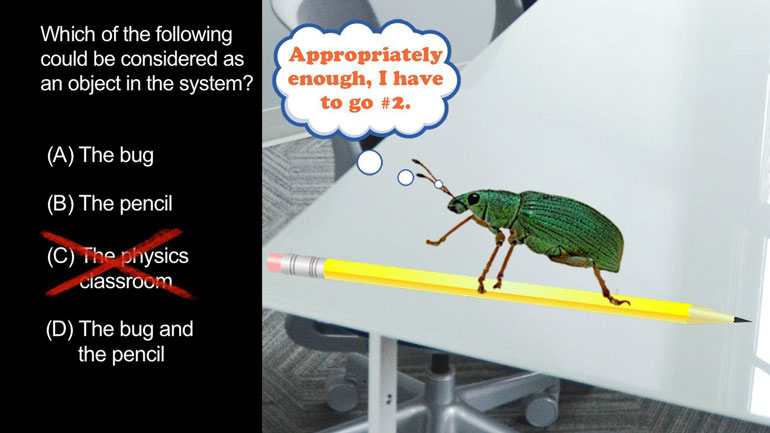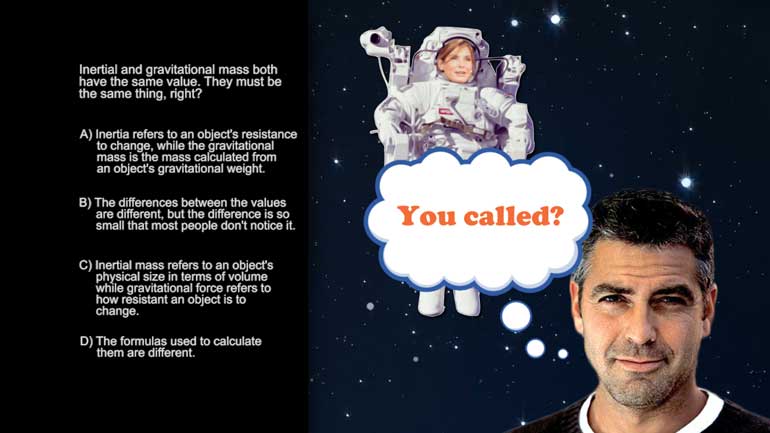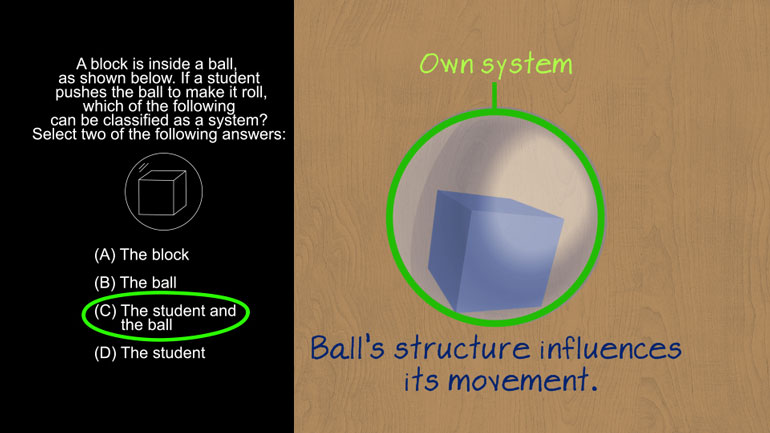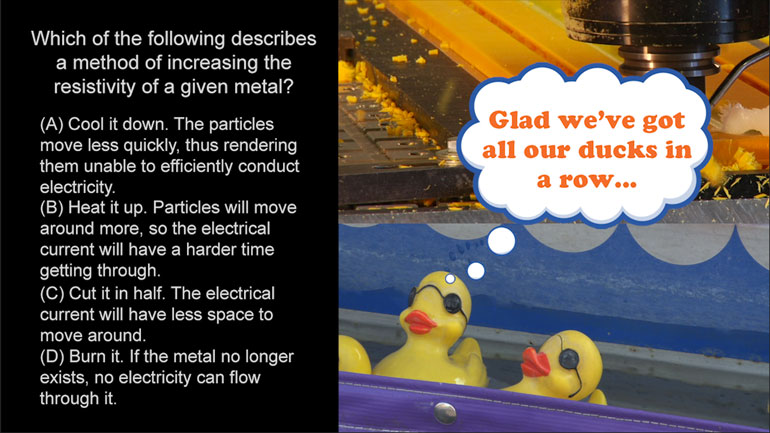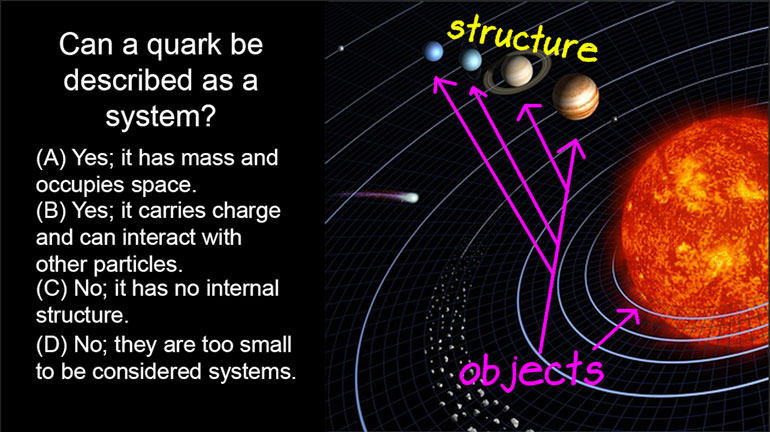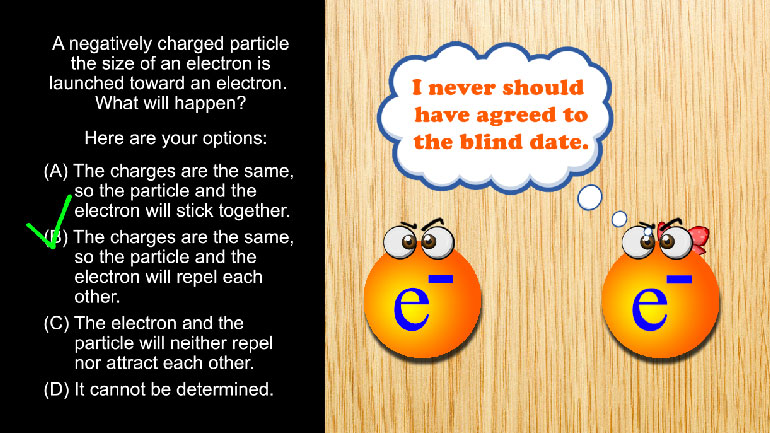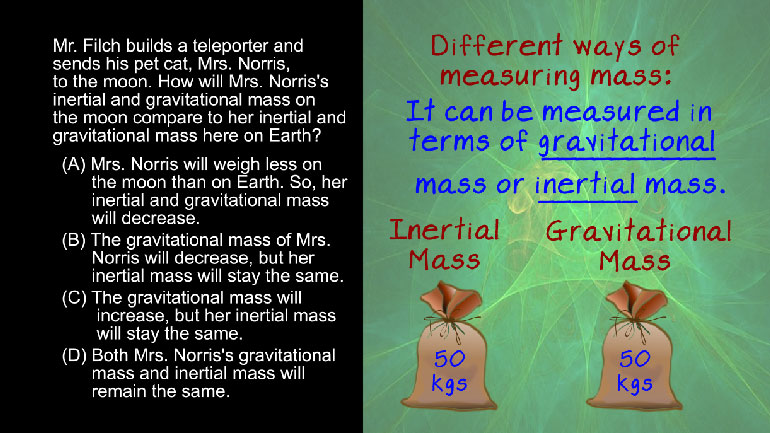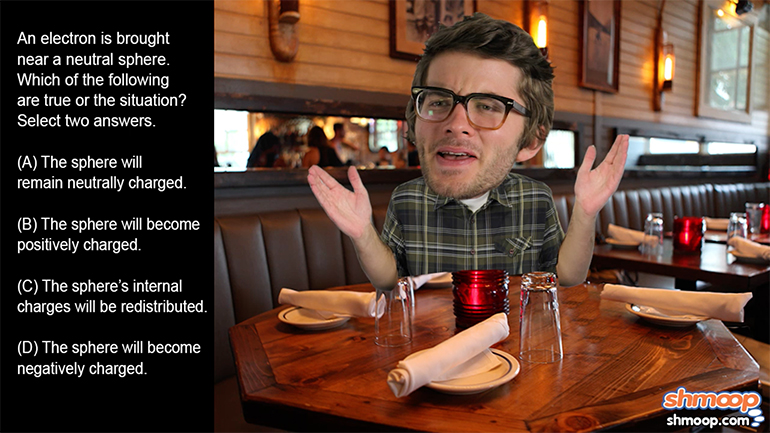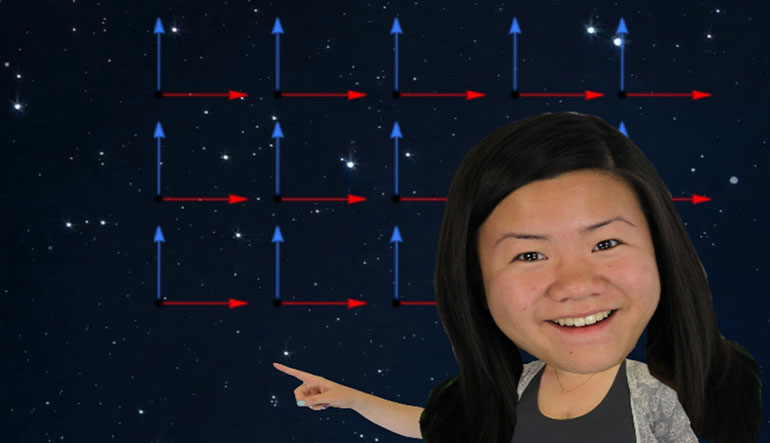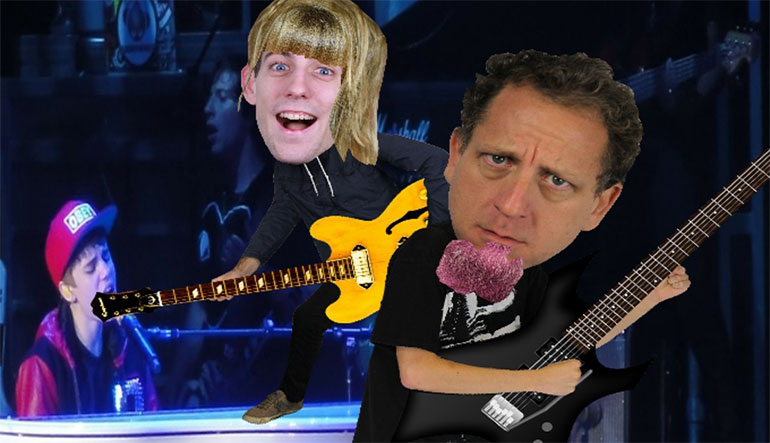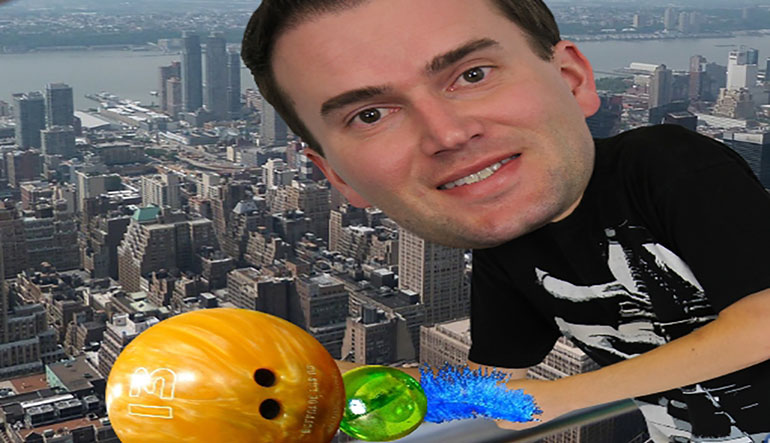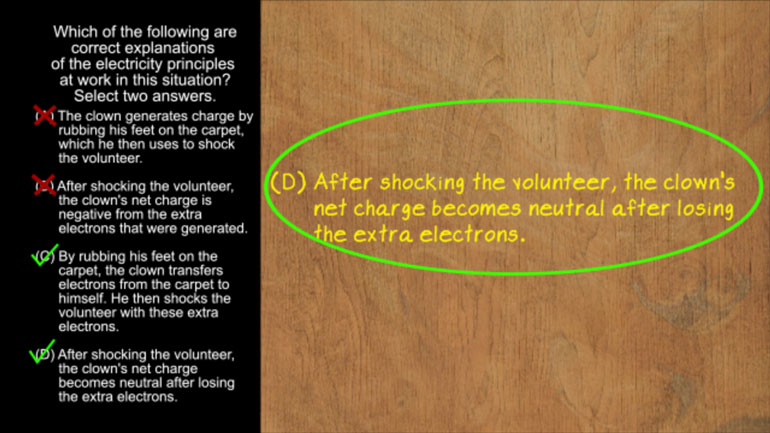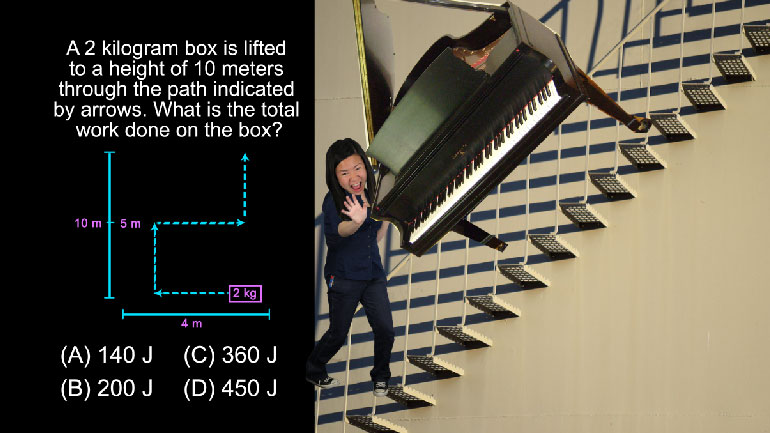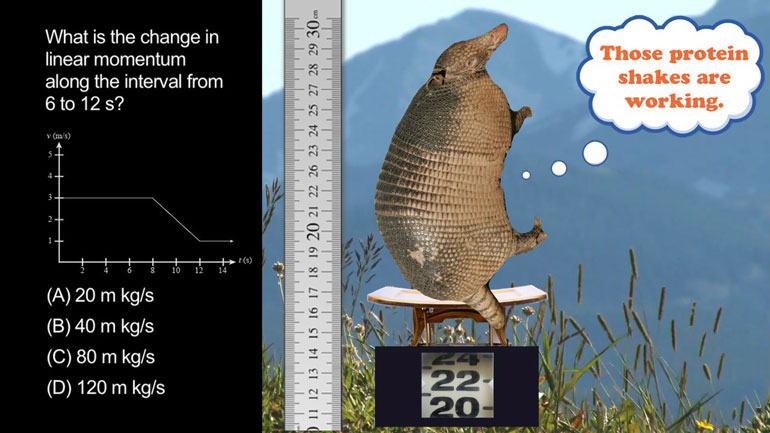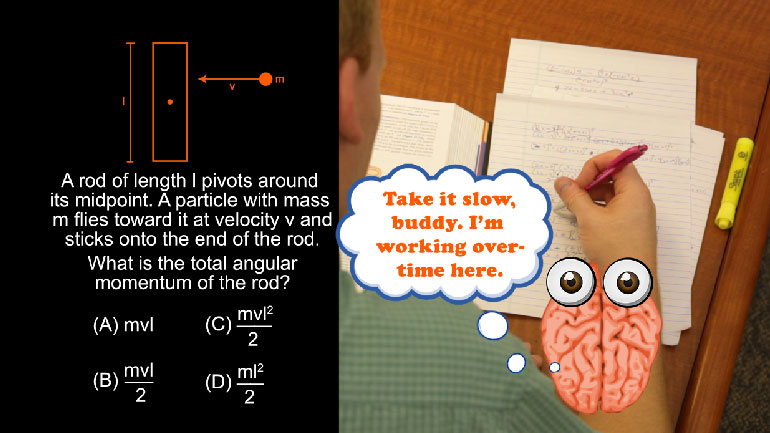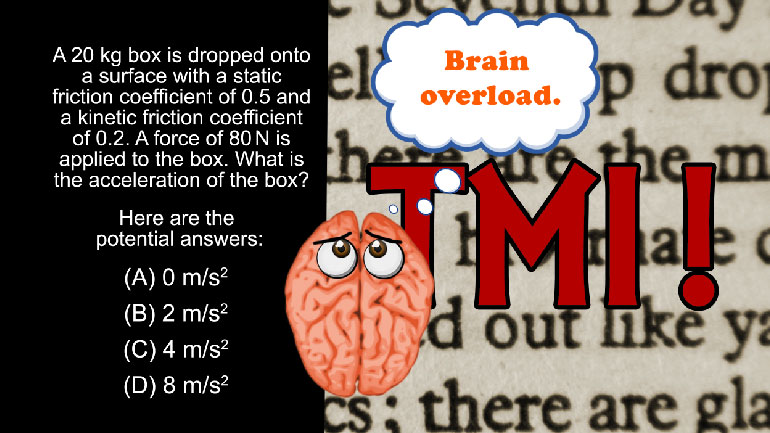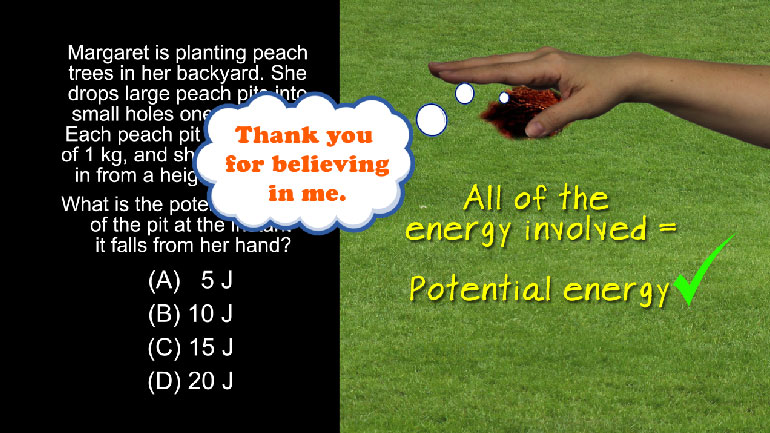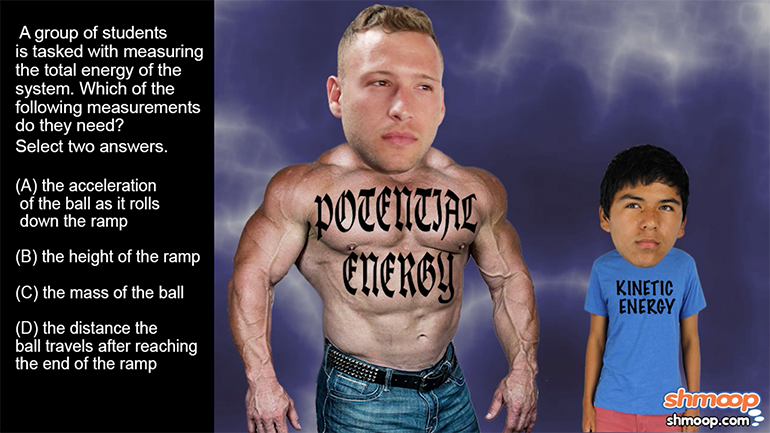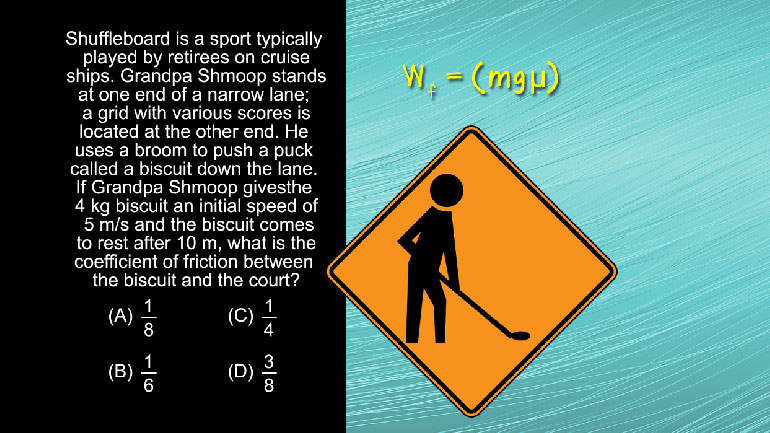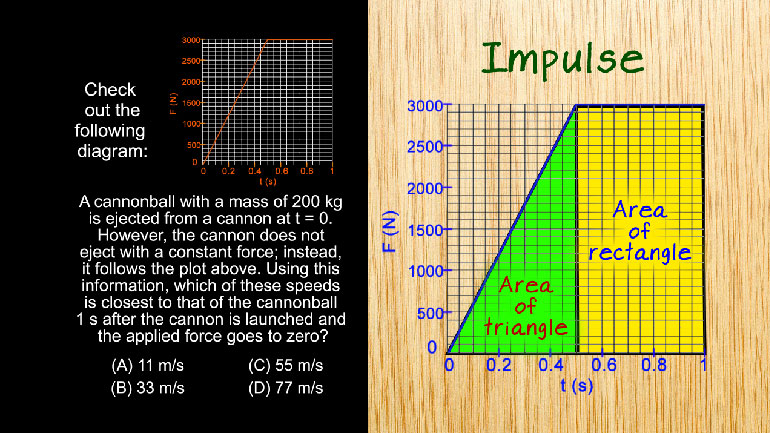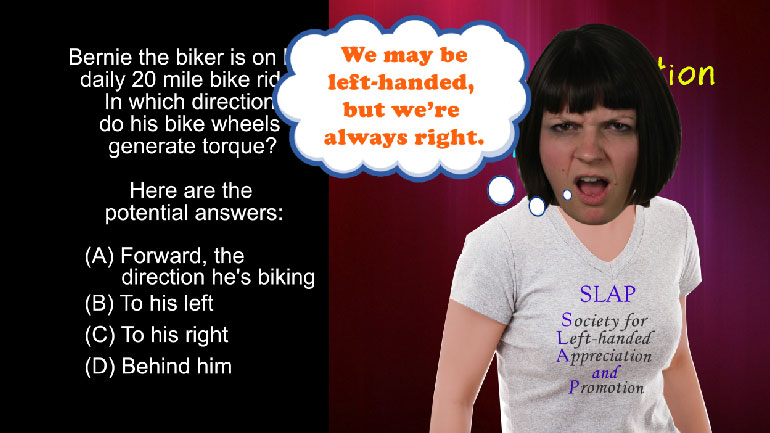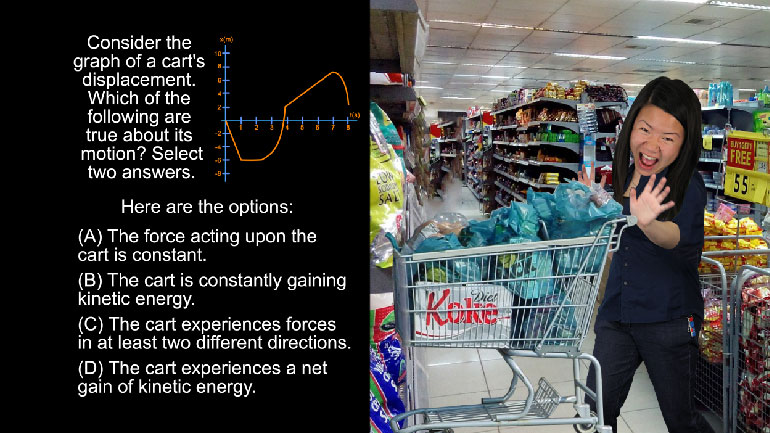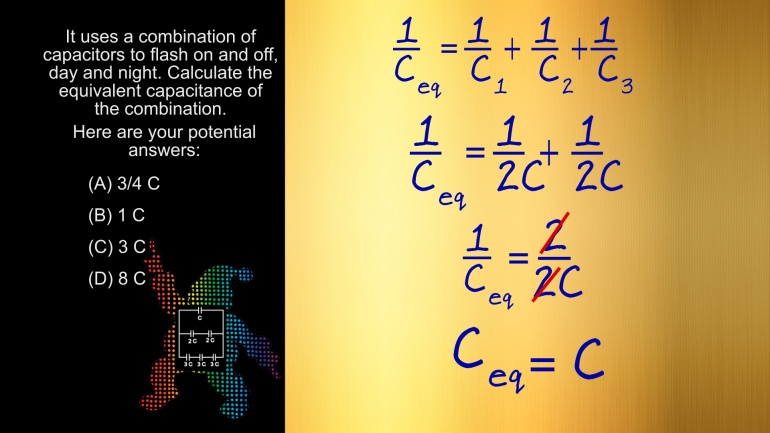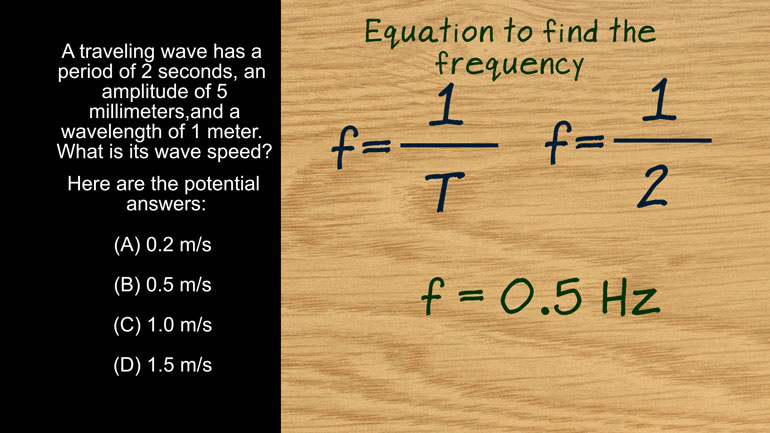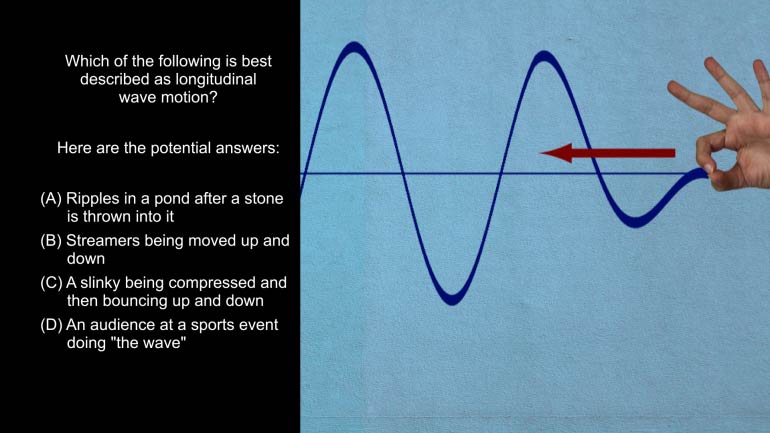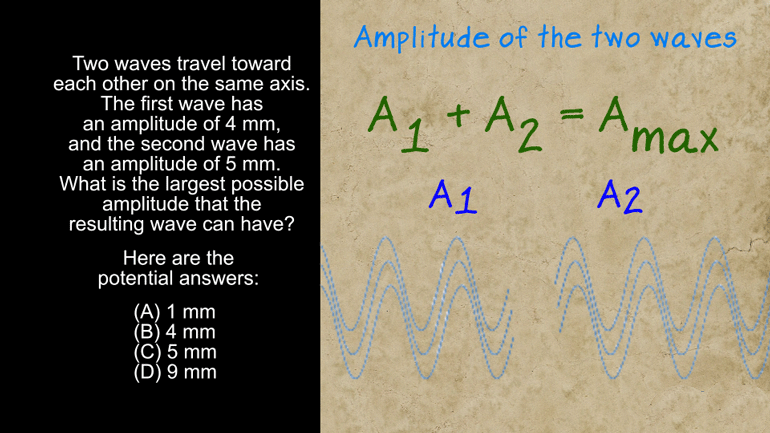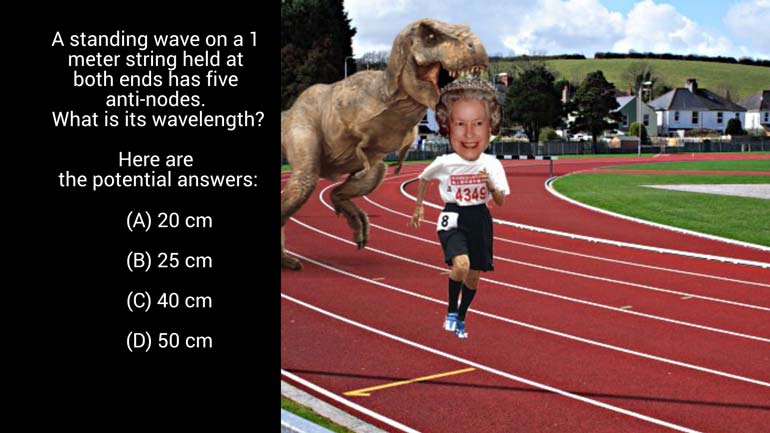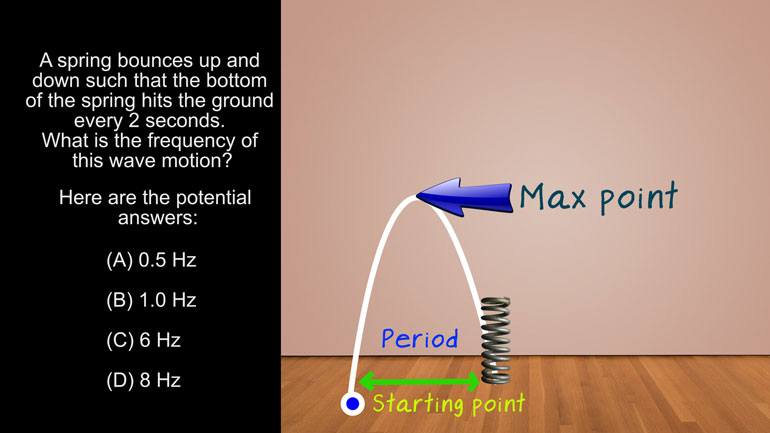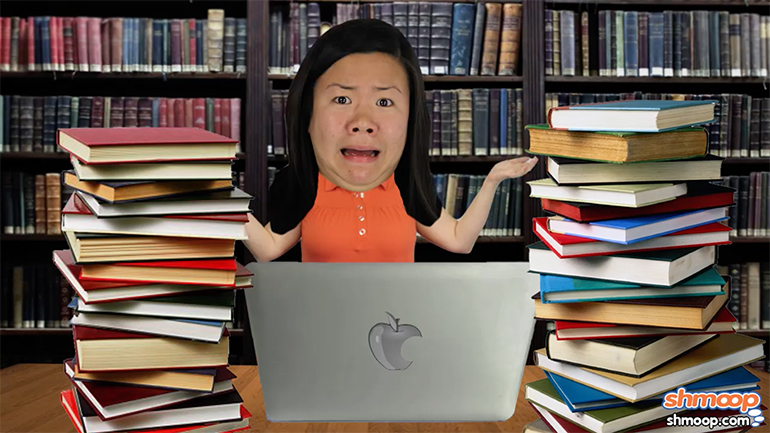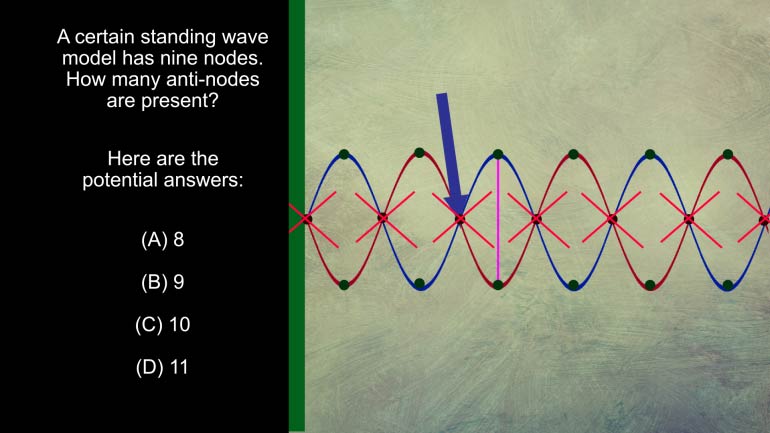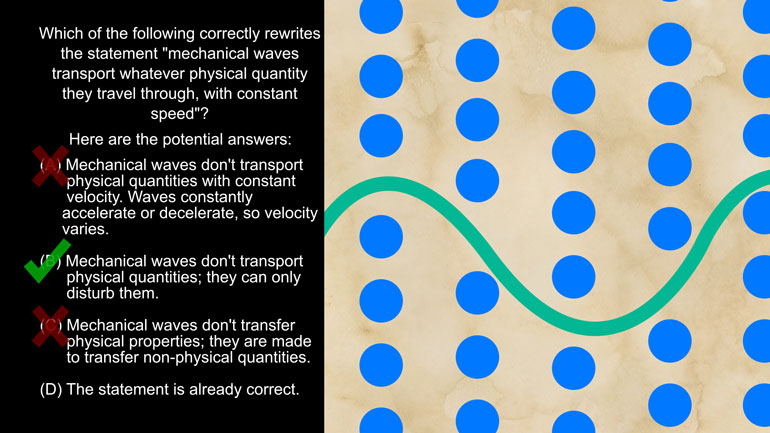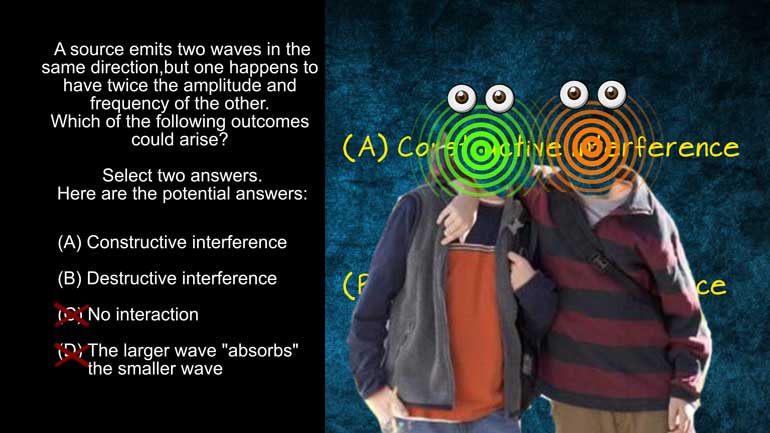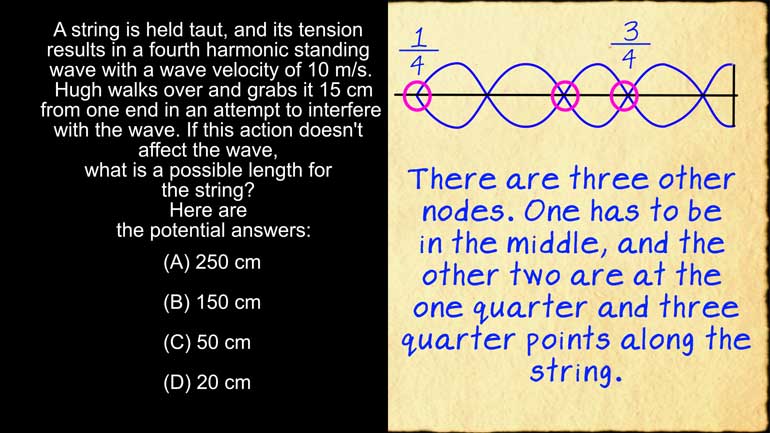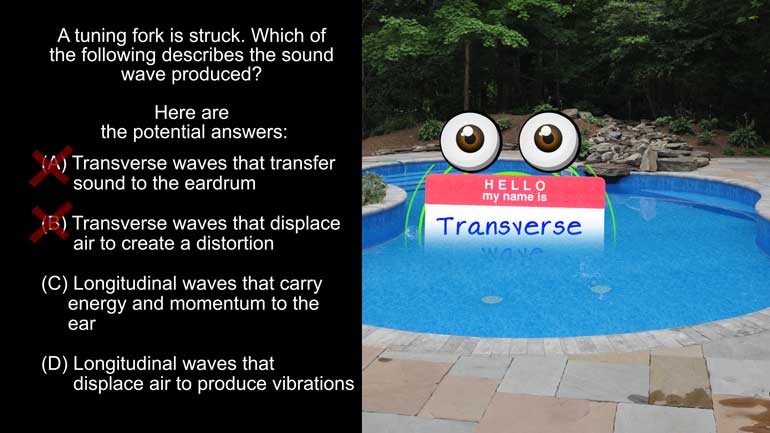ShmoopTube
Where Monty Python meets your 10th grade teacher.
Search Thousands of Shmoop Videos
AP Physics 1 Videos 86 videos
AP Physics 1: 1.4 Waves. Which of the following is technically true for Max as he stands at the edge of oblivion?
AP Physics 1: 1.4 Changes and Conservation Laws. Find the current across R2.
AP Physics 1: 2.4 Changes and Conservation Laws. Which of the following circuits should the students use?
AP Physics 1: 2.5 Properties of Objects and Systems 347 Views
Share It!
Description:
It's not the electron's fault it keeps bringing a bunch of negative energy to the room.
Transcript
- 00:02
All right, well, here's your Shmoop du jour, brought to you by negativity, because sometimes all that [lady gives thumbs down]
- 00:08
power of positivity stuff is really annoying. An electron is brought near a
- 00:12
neutral sphere. Which of the following are true of the situation? Select two [questions and answers]
- 00:17
answers. And here the potential ones...
- 00:22
Just a reminder: these multiple selection questions will be popping up on the test, [student takes test]
Full Transcript
- 00:26
so make sure to know how many answers you're supposed to give. To answer this
- 00:30
question, we need to remember that electrons have negative charges, like our [electron pictured]
- 00:34
cousin who's always down on everything. But this sphere is like baby bear's porridge-- [negative cousin]
- 00:39
not too positive, not too negative. Right in the middle just chilling, which means
- 00:43
it's made up of positively charged particles and negatively charged [neutral sphere pictured]
- 00:48
particles. It can't be made up of only neutrons--that just doesn't work. So what
- 00:53
happens when this electron comes strolling on up? Well, it's only close to
- 00:57
the sphere, it's not actually touching it, so the sphere's charge isn't going to [electron approaches sphere]
- 01:02
change. That means answer A is one of our correct choices. But since the particles [A selected]
- 01:07
within the sphere do have charges, well, they're going to react to this electron.
- 01:11
The positive particles within the sphere will be down to party with Mr. Electron, [Mr. Electron is not for everyone]
- 01:15
and the negative ones will want to get as far as possible from him. So
- 01:20
they'll be shifted around in that sphere as best they can.
- 01:23
That means the other correct answer is C, the sphere's internal charges will be [C selected]
- 01:28
redistributed. Since the sphere's charge isn't going to change, options B and D
- 01:32
are both incorrect. So just because the electron's a real downer, it doesn't [B and D are ruled out]
- 01:37
mean the sphere is going to change its charge. Yeah, they'd have to actually
- 01:40
be connected for that to happen, and speaking of which, maybe it's time we [sphere doesn't change its charge]
- 01:44
deleted that cousin from our Instagram. It really bums us out.
Related Videos
AP Physics 1: 2.5 Changes and Conservation Law. At what point(s) in this situation is energy lost in any form?
AP Physics 1: 1.4 Waves. Which of the following is technically true for Max as he stands at the edge of oblivion?
AP Physics 1: 1.4 Changes and Conservation Laws. Find the current across R2.
AP Physics 1: 2.4 Changes and Conservation Laws. Which of the following circuits should the students use?
AP Physics 1: 1.5 Waves. What can possibly occur when the two waves reach each other?
